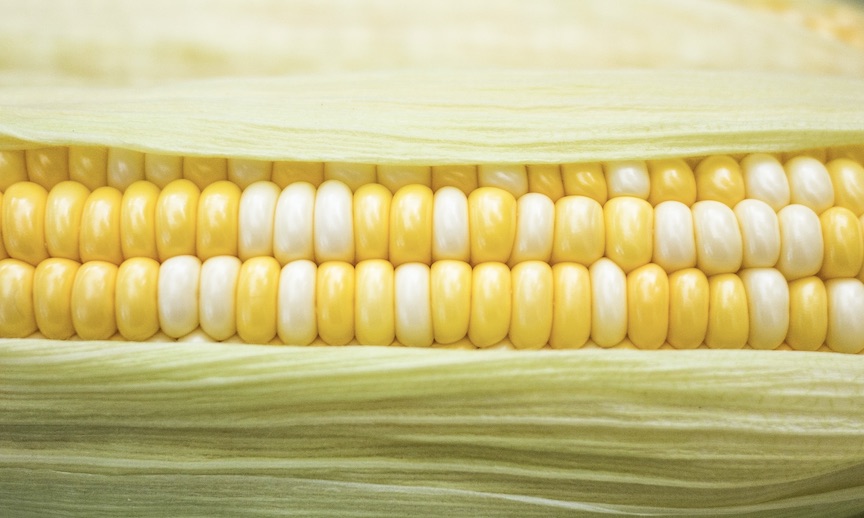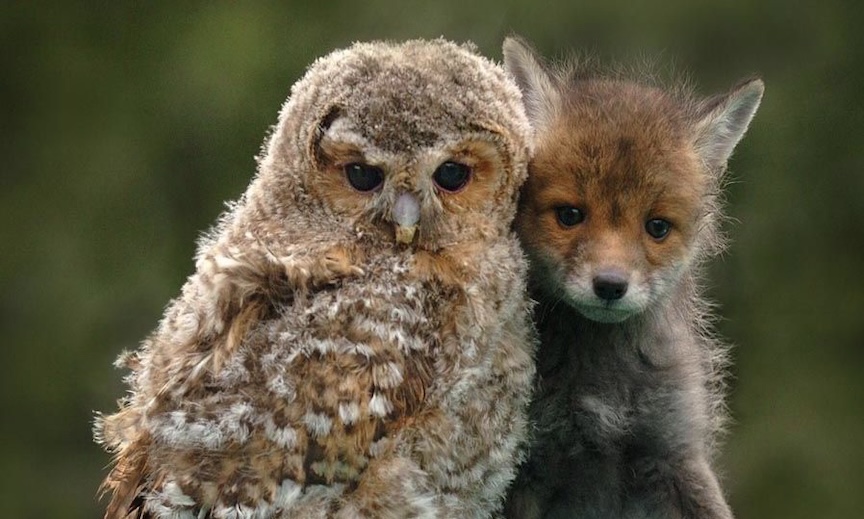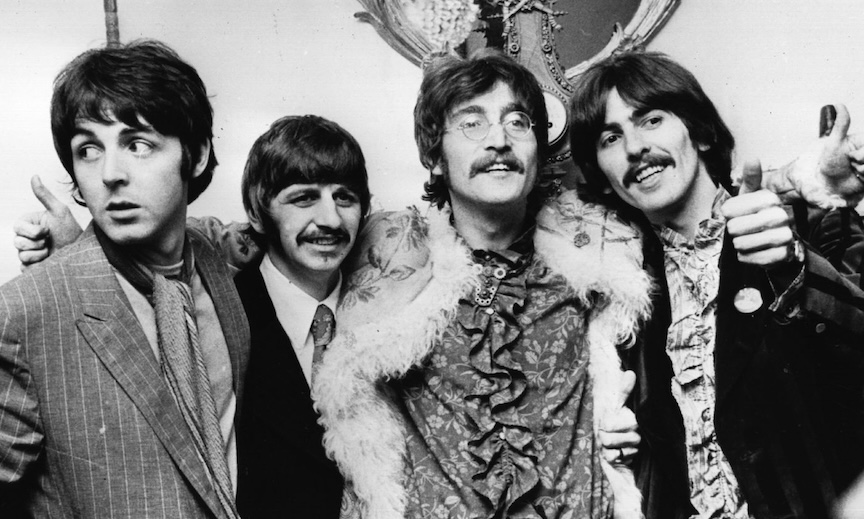ON THE COB
Merriam-Webster, the dictionary, is one of THE BEST Instagram accounts that I follow. It’s witty, sassy, and informative.
They offer a vocabulary-building word-of-the-day. Often, they share interesting etymological tidbits [did you know that “hoosegow,” the old wild-west term for a jail, comes from someone mishearing the Spanish word juzgado, a tribunal or panel of judges? I didn’t either. Thank you, Merriam-Webster!]. Their posts are always good-natured and encouraging. Sometimes, they read like outright affirmations. They are chock-full of word-play and puns — well, you can see why I like them.
Last week, they introduced me to a term I’d never heard before: RETRONYM.
A retronym is a phrase consisting of a noun and a modifier that specifies the original meaning of the noun. “Organic food” is a good example. At one time, all food was organic, more or less. People didn’t need to spell out that something was organic until processed foods, artificial foods, unnatural foods became the norm. Non-organic is now assumed, and organic food is a distinct, specialized, and more expensive thing.
There are lots of interesting retronyms out there in our everyday parlance: bar soap, cloth diapers, corn on the cob, snail mail…
This got me thinking about how this particularity of changing language affects our perception of the things we’re talking about.
In some instances, the introduction of a retronym into common usage marked an expansion: hard-cover books, live music, natural light. The original things still existed as they always had, of course. But newer forms — paperbacks, recordings, and artificial illumination — broadened people’s understanding and experience of them. The differentiating terminology was necessary because the category got bigger — books, music, and light meant more.
Other retronyms refer to something that has become antiquated or obsolete. The new thing essentially replaced the old thing. Manual typewriters, film cameras, quill pens, and silent movies are all truly retro in that, for the most part, they’ve been supplanted utterly by the newer, unmodified version. If one hears about a movie today, it’s fair to assume that it has sound. A camera is definitely digital unless otherwise noted, and it’s probably, actually, a telephone. If I ask to borrow a pen, and you hand me a 2-foot long ostrich plume and an ink pot, I’ll be surprised that I should’ve been more specific.
Still other retronymns are used for emphasis, perhaps to re-establish or re-claim the priority of the original meaning of the word. Sit-down restaurants, brick-and-mortar stores, regular coffee, and real leather all have a whiff of “the good old days” about them, before the modifiers were even necessary. If I went to a store and then to a restaurant, where I sat down in the leather booth and ordered some strong coffee, nobody thought I was talking about online shopping, door dash, vinyl seats, and decaf.
So I’ve been on the lookout for retronyms. Acoustic guitars, in-person meetings, hand-written notes. It’s all about the adjective, the adjective that didn’t used to be necessary, but now is required to describe the original thing as it once was assumed to be.
And I thought about “the old me.” As in, “that was the old me, I’m different now.” The old me used to be, simply, me. But now I’ve grown, transformed… new and improved, perhaps? Hm.
I am not sure what I think about this. Maybe it can be empowering. Maybe, though, it’s just mind-fuckery.
Too often, this phrase “old me” is tossed out to describe someone obsolete or antiquated, a way of being in the world that I left behind because it was no longer useful. I’m all about the NEW me, now. I don’t even want to think about the tired old sack I used to be, that un-evolved, ego-driven, wreck of unhealthy habits and cultural conditioning and bad choices. I’ve invested in myself — finally! — thanks to the encouragement of advertisers and the promise of the self-help industry. And not only am I better than ever, I’ve discovered that this new me is, in fact, the REAL me.
While I’m all in favor of personal growth and spiritual awakening, there’s something about this idea of new me versus old me that seems kind of mean. It’s self-disparaging, even as it’s trying to denote progress. Sure, it’s great to celebrate our new selves — new you, new me, new us — emerging triumphant out of all our prior experiences. But maybe the victory we achieved doesn’t have to be on the broken backs of our vanquished former identities.
I can’t think of a time when I used the term “old me” to denote the true me, my more authentic self. Maybe, occasionally, with nostalgia, I think about more innocent times, carefree days when I had my whole life ahead. Before bitter life lessons, disappointments, and trauma burned the misty watercolor glow out of me. But even so, it seems like that old me (which is a bit of a misnomer because it’s actually younger me) was pretty darned naive; if he’d known then what I know now, he probably wouldn’t have been nearly so starry-eyed.
I think it might be more helpful to try to hold this retronym of self — old me — in a way that signifies expansion. Expansion and inclusion. New me includes old me.
Rather than dismissing our old ways of being as discarded identities that we’ve thank-god-outgrown, perhaps instead we could practice looking for the ways we’ve broadened our repertoire, expanded our capacities, added more options and choices and freedoms to our being.
New me can include every way, all the ways I’ve ever been. My childhood dreams and my earned wisdom. Our first loves and our heartbreaks and all the different ways we’ve learned to love again and again. Our heroic journeys from foolish youth, through challenges and opportunities, discovering fortitude, processing regret, digging deeper and climbing higher to achieve this ever-more-complete perspective on ourselves and everything.
_____________________________________
Corn can be canned, frozen, or fresh on-the-cob. Corn on the cob is a retronym because, back in the day, it was always on the cob. If someone said “corn,” it was assumed to be on the cob. Now, we might prefer it one way or another. On the cob is great. But obviously there’s nothing wrong with the convenience of frozen or canned corn, either. Or the popped kind. Our understanding, experience, and appreciation of corn has expanded.
Perhaps self, or “me,” can be something similar. Our on-the-cob selves are still accessible — all those ways of being, how we were then, “old me” — that’s still available. But we are no longer cob-bound. And no longer are we just seasonal — we can be a year-round enjoyment.
I can’t wait to be with you this Sunday, niblets! The sensational Dianna Hughes will be our special musical guest. XO, Drew
©2023 Drew Groves




